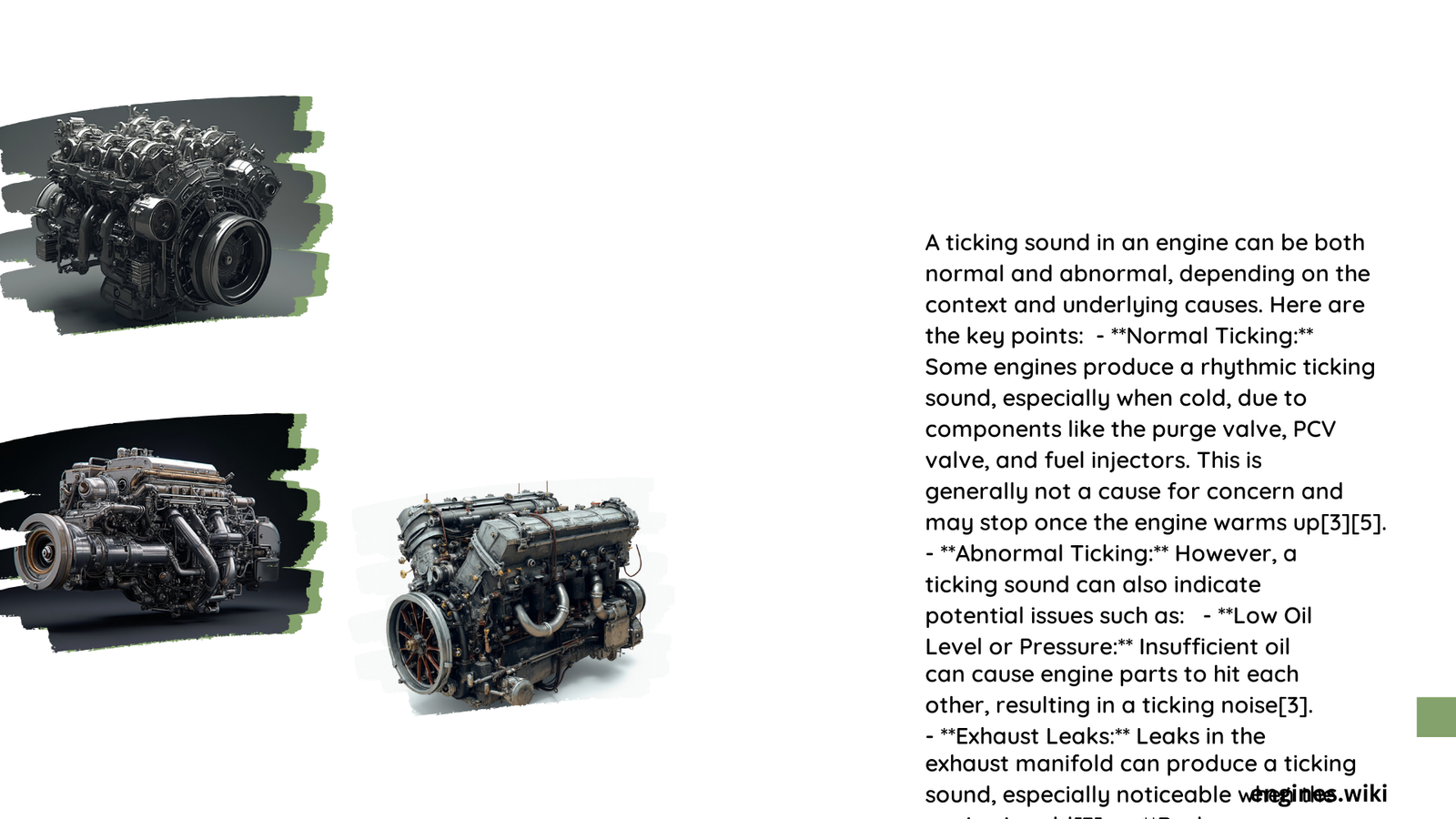Is Ticking Sound in Engine Normal? A Comprehensive Diagnostic Guide
Quick Summary
Engine ticking sounds are rarely completely normal and often indicate underlying mechanical issues. While some minimal ticking can occur due to wear and tear, persistent or increasing sounds typically signal potential problems with valve train components, oil pressure, or lubrication systems that require professional inspection and potential repair.
What Causes Engine Ticking Sounds?
Are All Engine Ticks the Same?
Not all engine ticks are created equal. Understanding the nuanced differences can help diagnose potential problems:
| Tick Characteristic | Potential Cause | Severity |
|---|---|---|
| Mild, Consistent Tick | Normal Wear | Low Risk |
| Increasing Intensity | Mechanical Wear | Medium Risk |
| Sharp, Loud Tick | Serious Component Failure | High Risk |
Top Mechanical Reasons for Engine Ticks
- Valve Train Complications
- Misaligned valve clearances
- Worn camshaft components
-
Hydraulic lifter deterioration
-
Lubrication System Problems
- Low oil pressure
- Incorrect oil viscosity
-
Contaminated engine oil
-
Exhaust System Issues
- Manifold gasket leaks
- Damaged exhaust components
- Loose heat shields
How to Diagnose Engine Ticking
Critical Diagnostic Steps
- Listen Carefully: Note tick frequency, intensity, and RPM range
- Check Oil Levels: Ensure proper oil quantity and quality
- Observe Performance: Monitor any accompanying performance changes
- Professional Inspection: Consult automotive technician for precise diagnosis
When to Worry About Engine Ticks
Red Flags Requiring Immediate Attention
🚨 Warning Signs:
– Ticking sound increases in volume
– Noticeable during specific RPM ranges
– Accompanied by reduced engine performance
– Persistent ticking after oil change
Prevention and Maintenance
Proactive Engine Care Strategies
- Regular oil changes
- Use manufacturer-recommended oil viscosity
- Periodic valve train inspections
- Address small issues before they escalate
Technical Insights
Oil Pressure Measurements
Normal Oil Pressure Ranges:
– Idle: 10-20 PSI
– Under Load: 30-60 PSI
Cost Considerations
Potential Repair Expenses
| Repair Type | Estimated Cost Range |
|---|---|
| Oil Change | $50 – $100 |
| Lifter Replacement | $500 – $1,200 |
| Major Engine Repair | $2,000 – $4,000 |
Expert Recommendations
- Never ignore persistent engine sounds
- Perform regular maintenance
- Use high-quality lubricants
- Address issues promptly
Final Thoughts
While some minimal ticking might be normal, consistent or increasing engine sounds warrant professional evaluation. Early detection can prevent costly repairs and potential engine failure.

